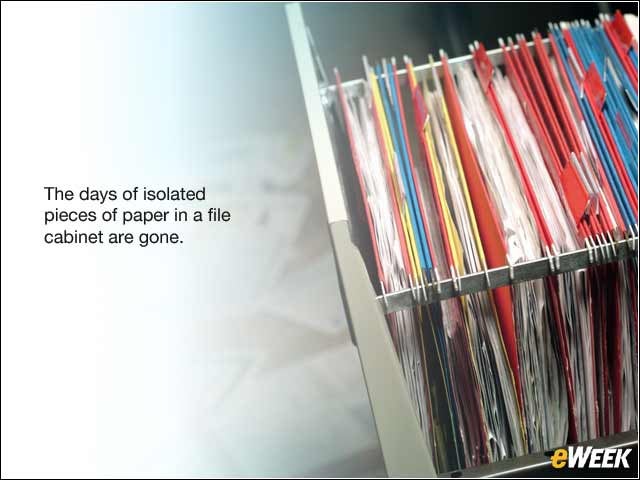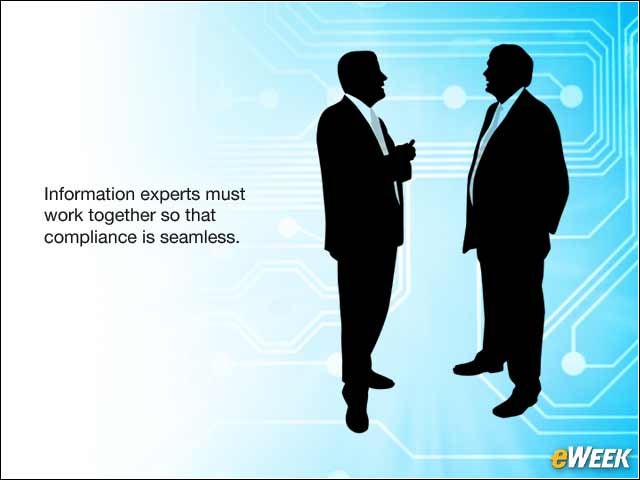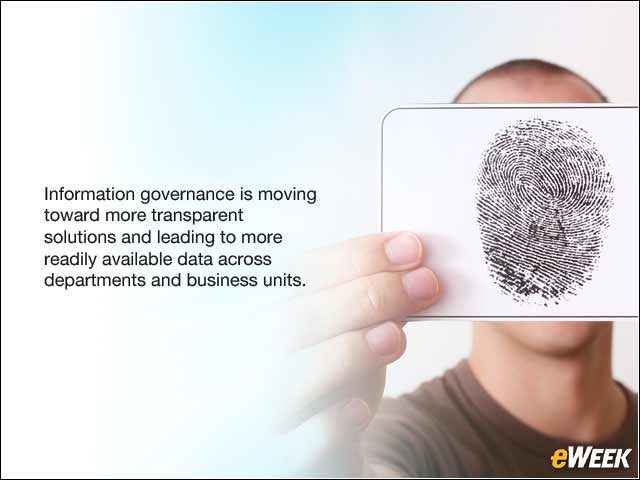eWEEK content and product recommendations are editorially independent. We may make money when you click on links to our partners. Learn More.
1How Information Governance Is Evolving in the IoT Era
2Defining Information Governance
Information governance, or IG, is the set of multi-disciplinary structures, policies, procedures, processes and controls implemented to manage information at an enterprise level, supporting an organization’s immediate and future regulatory, legal, risk, environmental and operational requirements. A record-keeper will appreciate this.
3IG Succeeds Through Records Management, IT Collaboration
The old theory was that once a record was created, it could never be changed. Now, the only constant around data is change. IT owns the digital infrastructure, but not the content. In the digital world, documents can be resaved and transported easily and quickly. These aren’t isolated pieces of paper in a file cabinet anymore.
4Regulations Are Always Changing
New regulations are continuously emerging, while existing laws are frequently amended, making compliance increasingly challenging. With so many moving parts, information experts must work together and speak the same language to achieve the common goal of successful information governance. Compliance must be seamless.
5Format, Medium Will Cease to Matter
The distinction between physical and digital will matter less and less in the coming years. Instead, information will be defined as either managed or unmanaged. Regulations that govern physical and digital are the same, which means the penalties for non-compliance or data loss are also equal. Conversion, multiple applications and archiving generates identical content in multiple places, so its value, regardless of format, is the same. Removing distinction by format promotes greater understanding of both types of information and addresses the real question at-hand: Is every bit of information being appropriately managed?
6Today’s Records Manager Isn’t Tomorrow’s Records Manager
Records managers are using their expertise to manage paper documents—and will continue to do so. New positions focused on IG will emerge within legal and IT that will be filled by those who once served strictly as records managers; RMs will serve as IG managers who catalog managed and unmanaged data and oversee the information life cycle. Such a position will allow organizations to merge regulation and technology without hindering productivity.
7Technology Simplifies, Automates IG
Solution providers will commercialize systems for mass automation, user experience and platforms that will enable agnostic enterprise deployment. Physical and digital information will be managed by one system, and make IG a transparent solution, with data across departments, business units and geographies quickly accessible. The end result is that IG will become an intuitive process and part of an organization’s DNA. Such advances will give organizations the efficiency, security and risk-reduction support they need to reduce IT spend and maintain information in a manner that will support information governance initiatives.
8Data Privacy Will Lead Regulation
Because digital data is typically on the move, in terms of sharing and portability, privacy will become an even greater challenge to IG initiatives. Regulations and laws will be created to encompass IG, privacy and security, and will require active management and robust auditing. Tighter partnerships will be formed within organizations to provide overall governance and data management capabilities, with an information management process that is more fluid and transparent.
9Mobile, Apps Will Play a Greater Role in IG
It will be necessary to create new architecture and applications to consider cloud security and legally defensible consolidation. The number of devices will stabilize, but the number of applications or repositories will greatly increase. Intuitive applications will be created and employed for specific use cases, and there will no longer be large applications servicing multiple functions or departments.








